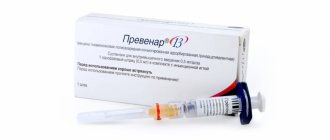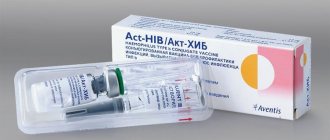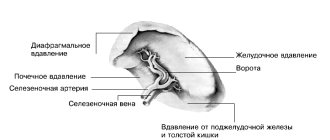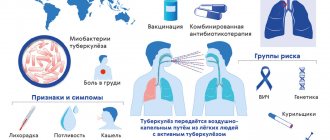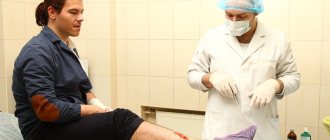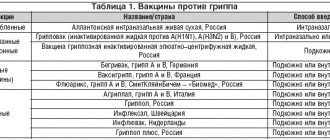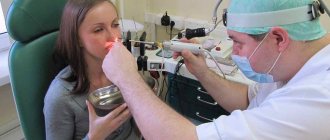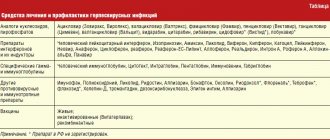December 14, 2020
In our medical center you can get vaccinated against pneumococcal infection. We tell you who needs it and why, what vaccine we use, and whether the pneumococcal vaccination can protect against COVID-19.
Pneumococcus (Streptococcus pneumoniae) is the causative agent of bacterial infections that manifest as pneumonia, otitis media, meningitis, sinusitis, etc. Pneumococcal pneumonia poses the greatest danger to young children, the elderly, and people with certain health conditions.
It is known that more than 1.5 million people die worldwide each year from complications caused by Streptococcus pneumoniae.
Streptococcus pneumoniae - a formidable bacterium
On the one hand, Streptococcus pneumoniae is a representative of the normal microflora of the human upper respiratory tract. Up to 70% of people are carriers of one or more types of pneumococci. “Organized” (living or being in groups) children and adults have the highest level of carriage. More than 90 different serotypes (immunological variants) of pneumococci are now known. On the other hand, all pneumococci are potentially pathogenic, and about 20 of them cause severe infections.
The saddest thing is that pneumococci have developed resistance to many antibiotics. In countries where antibiotics are widely used, the level of resistance of Streptococcus pneumoniae to penicillin reaches 50% of all isolated pneumococci, and to tetracycline and chloramphenicol - up to approximately 30%.
The problem is aggravated by the fact that the rapid development of the disease - 2-3 days - as a rule, does not leave time for a special determination of the sensitivity of pathogens to antibiotics. Patients with severe infection often die despite standard antibiotic therapy.
Who is at risk for pneumococcal infection?
- people aged 55 years and older;
- children;
- adults with chronic diseases;
- so-called “organized contingents” - children who go to kindergarten, residents of nursing homes and homes for the disabled, military personnel, etc.
Pneumococcus: do we need a vaccine?
Pneumonia is an infection caused by streptococci. Most often, pneumonia occurs in children who go to kindergarten. Western experts have been creating a vaccine for a long time to protect our offspring from this infection. The resulting product was immediately approved by WHO and introduced into national vaccination calendars. However, more and more European doctors began to wonder: is this vaccine really necessary?
Text: Tatyana Lapshina, pharmacist, biochemistry teacher (Moscow)
Main cause of pneumonia
The culprit in the development of the disease is pneumococcus (more precisely, the bacterium Streptococcus Pneumoniae
). Its active life in our body leads not only to the development of pneumonia, but also causes the appearance of bronchitis, sepsis, meningitis, and otitis media.
The bacterium primarily affects children under two years of age (their protective system has not yet formed) and older people (their immunity is weakened due to age).
The infection is transmitted by airborne droplets: when talking, sneezing, coughing. It turns out that one sick person in a room can infect a large number of people. It can be difficult to eliminate pneumococcus with antibiotics - the microorganism is too resistant. This state of affairs prompted the medical world to create a pneumococcal vaccine that can protect us and our children from terrible diseases.
Russia and the pneumococcal vaccine
For a long time, immunization of our children against pneumococcus was carried out only for certain indications: for example, if the child is often sick or goes to camp or kindergarten.
Abroad, the situation was different - in most countries, vaccination was included in national calendars.
The Ministry of Health made a decision in accordance with WHO requirements: in January 2014, the pneumococcal vaccine was included in the vaccination schedule. Starting this year, all children are subject to immunization.
Important: Vaccination, according to recommendations, should be carried out three times: in the first year of life twice (at 7 and 9 months) and in the second - once.
The other side of the coin
In most cases, the vaccine is well tolerated by children. Rarely, but side effects occur - redness at the injection site, swelling or the appearance of irritability and temperature. These symptoms disappear after some time.
Other news causes great concern - Western doctors are skeptical about the effectiveness of such vaccination. Discussions reach the point where the vaccine is considered a dummy, saying that it is useless to do it. A number of experts believe that the need to use the pneumococcal vaccine should be checked again - supposedly previous studies were conducted incorrectly.
The information coming to us from the West raises concerns. The “life” of pneumococcus in the United States is burdened by vaccination - the incidence of pneumonia falls every year. In such a situation, other bacteria are not going to sleep and take up the vacant space in the body of children, causing the development of a more serious disease - empyema (accumulation of pus in body cavities). According to one study, hospitalization of children with this diagnosis in the United States increased by 70% (between 1997 and 2006). Scientists believe that the reason lies precisely in the use of the pneumococcal vaccine.
Thus, the question of whether to vaccinate against pneumococcus remains open.
As it turns out, debate about the effectiveness and safety of the vaccine is just beginning to gain momentum. On the one hand, a significant drop in the incidence of pneumonia is observed abroad, noting the high role of vaccination. On the other hand, scientific minds claim that this fact requires further evidence - new research according to a different scheme. But the worst thing is the activation of other bacteria that “decided” to occupy the vacated niche. More time and new research is required.
Photo thinkstockphotos.com
Vaccination against pneumococcal infection
In Russia, vaccination against pneumococcus began in 2008 using the Prevenar 7 vaccine. Currently, the following are registered in the country:
- Prevenar 7 and Prevenar 13 (Pfizer),
- Pneumovax 23 (Merck Sharp & Dohme Corp),
- Synflorix (GlaxoSmithKline).
The national vaccination schedules of most developed countries include the Prevenar vaccine; it is recommended by the World Health Organization. At the medical level, residents of Novosibirsk can get vaccinated against pneumococcus with this particular drug.
The effectiveness is confirmed by research! The Prevenar vaccine has been used in the United States since 2000. Already in the first 5 years, the frequency of severe forms of infection in children under 4 years of age decreased by 40 times. According to American researchers, the reduction in the number of pneumococcal carriers, which was achieved through mass vaccination with Prevenar, led to a twofold decrease in visits to doctors for otitis of any etiology.
Wanting to achieve greater effectiveness of the drug against complicated pneumonia, scientists created a new 13-valent vaccine. It contains additional strains of pneumococcus, which are responsible for the development of complications of pneumonia.
According to the Russian vaccination calendar, vaccination against pneumococcal infection is mandatory for all children under 5 years of age. For adults, vaccination is recommended when indicated. It is indicated for conscripts, older people with chronic lung diseases, and pensioners who live in boarding schools and nursing homes.
In general, vaccination can be recommended for all people over 55 years of age and adults with chronic diseases.
Prevenar vaccination schedule
- When vaccinating children under 2 years of age according to the National Calendar, the vaccine is administered three times (at 2 and 4.5 months and at 15 months).
- When vaccinated after two years of age - a single injection intramuscularly into the shoulder.
There are 4 vaccines registered in our country:
- Prevenar (Pfizer, USA/UK) – contains a mixture of purified capsular polysaccharides of 7 serotypes of Streptococcus pneumoniae, individually conjugated to a diphtheria carrier protein, used in children from 2 months to 5 years.
- Prevenar 13 (Pfizer, USA/UK) – the vaccine contains a mixture of purified capsular polysaccharides of pneumococcus 13 serotypes.
- Pneumo 23 (Sanofri Pasteur, France) – contains a mixture of purified capsular polysaccharides of 23 serotypes of pneumococcus, used in children over 2 years old, administered once in frequently ill children, as well as in children with severe oncological and hematological diseases.
The following vaccination schedule with Prevenar vaccines is recommended: if vaccination begins after 6 months, the vaccine is administered 3 times (two injections in the 1st year of life with an interval of 1 month, the 3rd injection in the 2nd year of life). If the vaccine is administered in the 2nd year of life in the period from 12 to 15 months, it is recommended to administer it twice with an interval of 2 months; when vaccinated after 2 years, it is administered once intramuscularly into the shoulder.
Currently, the vaccine Synflorix (Glaxo Smith Klein Biologicals) is being registered - a mixture of purified capsular polysaccharides of 10 serotypes of pneumococcus.
All children from 1-2 years of age to 5 years are subject to vaccination against pneumococcal infection; it is especially important for frequently ill children and elderly people over 55 years of age.
Can the pneumococcal vaccine protect against Covid?
In late summer and fall 2021, reports emerged that the pneumococcal vaccine could protect against Covid-19 infection. Actually, no—it only prevents pneumococcal infections. On the other hand, many scientists and doctors believe that the pneumococcal vaccine can protect the patient from secondary complications of coronavirus infection.
In any case, vaccination against other respiratory diseases is still highly recommended during the Covid-19 pandemic.
There are no complications after vaccination with Prevenar. The patient may experience increased temperature and redness at the injection site. However, such a reaction usually occurs in people who have already had pneumococcus.
To get vaccinated, please make an appointment with our vaccination doctor by phone or online chat on the website.
Compatibility with other vaccines
"Prevenar" is combined with any other vaccines included in the immunization schedule for children in the first years of life. "Prevenar" can be administered to children simultaneously (on the same day) with any of the following antigens included in both monovalent and combined vaccines: diphtheria, tetanus, acellular or whole-cell pertussis, Haemophilus influenzae type b, inactivated polio, hepatitis B, measles, mumps, rubella and chickenpox - without changing reactogenicity and immunological parameters.
When simultaneous vaccination with Prevenar and other vaccines, injections are made in different parts of the body.
What causes pneumonia and can you get vaccinated against it?
In children, the causative agents of the bacterial form of this disease are:
- Streptococcus pneumoniae is the most common cause of pneumonia. It causes 20-60% of all cases in children under 18 years of age, with the highest proportion occurring between 6 months and 7 years of age. In adults, S. pneumonae is responsible for 35-40% of cases. It has 91 varieties, but only 23 of them are responsible for 90% of human infections. Despite its name, S. pneumoniae causes more than just pneumonia: along with the meningococcus Neisseria meningitidis, it is one of the main causes of bacterial meningitis, which is sometimes transient and extremely life-threatening.
- Vaccines – Prevenar 13, Pneumovax 23.
- Mycoplasma pneumoniae, Mycoplasma pneumoniae, is a very small bacterium that causes 5-50% of cases of illness in children, depending on age. Mycoplasma pneumonias are atypical and community-acquired (as a rule, they develop outside the walls of a medical institution, since their diagnosis is very difficult).
- There is no vaccine for it.
- Chlamydia pneumoniae, Chlamydia pneumoniae, is an intracellular parasite that causes 5-15% of cases (as in the previous paragraph - atypical) in children, depending on age. Chlamydia trachomatis is responsible for another 3-10%.
- There is no vaccine for chlamydia, but research is currently underway to make one possible in the future.
- Haemophilus influenzae, Haemophilus influenzae, causes 3-10% of pneumonia in children.
- May also cause meningitis and epiglottitis. In total, Haemophilus influenzae has 6 serotypes, of which type b is dangerous for humans.
- Vaccines - Hiberix, Act-HIB, Pentaxim (combined, also includes antigens of whooping cough, diphtheria, tetanus and polio), Infanrix Hexa (combined, includes everything that Pentaxim does, + hepatitis B).
The remainder of the statistics accounts for infection with enterobacteriaceae, Staphylococcus aureus, group A streptococcus Streptococcus pyogenes, chlamydia Chlamydia psitacci (the causative agent of psittacosis) and Coxiella burnetti (the causative agent of Q fever). These are quite rare and specific variants in which, for example, rodents, birds and cattle act as carriers of the infection.
The statistics for adult patients are somewhat different from those for children. The risk group primarily includes older people: for example, Legionella pneumophila appears among the pathogens. 75-80% of recorded cases of infection occur in people over 50 years of age. However, the championship is still held by Streptococcus pneumoniae, responsible for 30-50% of pneumonia in adults.
Thus, it is possible to protect yourself from severe complications if you get vaccinated against Streptococcus pneumonia and Haemophilus influenza type b - this way you can prevent up to 70% of the chance of infection.
Contraindications to vaccination
The Pneumo-23 and Prevenar vaccines are generally well tolerated. However, there are a number of contraindications.
Relative:
- infectious diseases, acute and chronic in the acute stage;
- fever of any origin;
- hyperthermia;
- pregnancy (no studies have been conducted);
- simultaneous vaccination with incompatible vaccines.
Absolute:
- allergy to any component of the drug.
Do I need to be vaccinated against hemophilus influenzae and with what?
There is still the issue of HIB, Haemophilus influenza, which until recently was considered necessary only for babies at increased risk of the disease. Unfortunately, this is no longer the case. In the current situation, for a child whose parents follow the National Calendar, immunization with Pentaxim or Infanrix Hex is optimal. This allows you to simultaneously protect him from several diseases and at the same time get rid of it with only one injection. According to the National Calendar, the first dose is administered at the age of 3 months, subsequent doses at 4.5 months and 6 months. Another injection, which consolidates the effect, is given at 18 months (one and a half years).
If a young patient has previously been given DPT or ADS-M for tetanus and diphtheria, you should consult your pediatrician. The fact is that, unlike the imported Infanrix Hex and Pentaxim, they do not contain antigens that protect against HIB. Perhaps it would be optimal to include Hiberix or another analogue of it in an individual schedule, which fights directly against Haemophilus influenzae.
Adult patients are recommended to be vaccinated against HIB if they have a pathology accompanied by a severe decrease in the body's natural defenses: for example, they have had their spleen removed, they need to undergo chemotherapy, or they have HIV.
One way or another, your attending physician can give you a recommendation based on the benefits of immunization for you. MAKE AN APPOINTMENT PRICES
Healthy safety net
Mask, I don’t know you: Muscovites ignore means of protection against the virus
Meanwhile, due to the worsening epidemic situation in the capital, “Covid” buildings are opening again
Russian immunologists and epidemiologists strongly recommend that adults and children get vaccinated against pneumococcus to protect themselves against coronavirus infection. These vaccinations can significantly improve the functioning of the barrier immunity of the mucous membranes, Andrei Prodeus, a research professor at the Kant IKBFU, told Izvestia.
“This is an absolutely confirmed fact: those vaccinated against pneumococcus have less chance of becoming infected and are less susceptible to complications,” said the specialist. “Their immunity can resist any respiratory viruses, including SARS-COV-2. In some regions of Russia, the pneumococcal vaccine is included in free regional programs.
According to the scientist, control of pneumococcal infection seriously reduces any complications of respiratory diseases, especially among children. We are talking about diseases such as purulent otitis media, community-acquired pneumonia, and sinusitis. Most of them are caused by pneumococcus, so if the patient is protected from it, he will recover much faster, added Andrei Prodeus.
Course of injections
Photo: IZVESTIA/Andrey Ershtrem
Discussions about whether a vaccine against pneumococcal infection can also save against COVID-19 have been going on in the scientific world for a long time. Various scientific articles provide evidence that such vaccinations can worsen the condition of those infected or have no effect on their health. However, recent observations show that in countries where the population of pneumococcal vaccinations is higher, mortality from coronavirus is lower.
Focus in the group: why the COVID-19 test is wrong
A connection was found between a false negative test result and the presence of high platelets and C-protein in the blood
In particular, a scientific group from Italy, which included specialists from the geriatric departments of the Faculty of Medicine of the University of Padua and the Biomedical Campus in Rome, published an article in which they analyzed how vaccination against influenza and pneumococcus correlates with the results of PCR tests for COVID-19. The study found that adult and older respondents who received a pneumococcal vaccine in the past year were much less likely to test positive for coronavirus compared to their unvaccinated peers.
Contraindications
For pneumococcal conjugate vaccines: increased sensitivity to previous vaccination (severe generalized allergic reactions); hypersensitivity to diphtheria toxoid and/or excipients; acute infectious or non-infectious diseases, exacerbations of chronic diseases. Vaccinations against pneumococcal infection are carried out after recovery or during remission. Pneumococcal polysaccharide vaccines: pronounced reaction to the previous vaccination, PPV23 vaccination less than 3 years before the intended PPV23 vaccination.
Vaccines
Pneumo-23
This vaccine is produced in France. Release form: individual disposable syringe with a capacity of 0.5 ml. This vaccine contains antigens of 23 strains in a phenol buffer solution.
Prevenar
This vaccine is produced in the USA. Release form: individual disposable syringe with a capacity of 0.5 ml. This vaccine contains antigens of 23 strains, as well as the CRM197 protein in a buffered sodium chloride solution.
